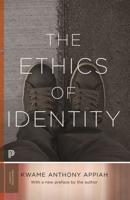Publisher's Synopsis
People backslide. They freely do things they believe it would be best on the whole not to do - and best from their own point of view, not just the perspective of their peers or their parents. The aim of this book is to explain why that happens. The first main item of business is to clarify the nature of backsliding - of actions that display some weakness of will. To this end, Mele uses traditional philosophical techniques dating back to Plato and Aristotle (whose work on weakness of will or "akrasia" he discusses) and some new studies in the emerging field of experimental philosophy. He then attacks the thesis that backsliding is an illusion because people never freely act contrary to what they judge best. Mele argues that it is extremely plausible that if people ever act freely, they sometimes backslide. The biggest challenge posed by backsliding is to explain why it happens. At the book's heart is the development of a theoretical and empirical framework that sheds light both on backsliding and on exercises of self-control that prevent it. Here, Mele draws on work in social and developmental psychology and in psychiatry to motivate a view of human behavior in which both backsliding and overcoming the temptation to backslide are explicable. He argues that backsliding is no illusion and our theories about the springs of action, the power of evaluative judgments, human agency, human rationality, practical reasoning, and motivation should accommodate backsliding.











